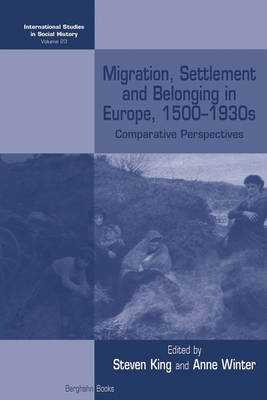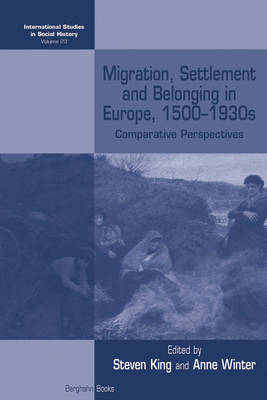
- Retrait gratuit dans votre magasin Club
- 7.000.000 titres dans notre catalogue
- Payer en toute sécurité
- Toujours un magasin près de chez vous
- Retrait gratuit dans votre magasin Club
- 7.000.0000 titres dans notre catalogue
- Payer en toute sécurité
- Toujours un magasin près de chez vous
Migration, Settlement and Belonging in Europe, 1500-1930s
Comparative Perspectives
Description
The issues around settlement, belonging, and poor relief have for too long been understood largely from the perspective of England and Wales. This volume offers a pan-European survey that encompasses Switzerland, Prussia, Belgium, the Netherlands, and Britain. It explores how the conception of belonging changed over time and space from the 1500s onwards, how communities dealt with the welfare expectations of an increasingly mobile population that migrated both within and between states, the welfare rights that were attached to those who "belonged," and how ordinary people secured access to welfare resources. What emerged was a sophisticated European settlement system, which on the one hand structured itself to limit the claims of the poor, and yet on the other was peculiarly sensitive to their demands and negotiations.
Spécifications
Parties prenantes
- Editeur:
Contenu
- Nombre de pages :
- 326
- Langue:
- Anglais
- Collection :
- Tome:
- n° 23
Caractéristiques
- EAN:
- 9781785332180
- Date de parution :
- 01-03-16
- Format:
- Livre broché
- Format numérique:
- Trade paperback (VS)
- Dimensions :
- 152 mm x 229 mm
- Poids :
- 435 g

Les avis
Nous publions uniquement les avis qui respectent les conditions requises. Consultez nos conditions pour les avis.





